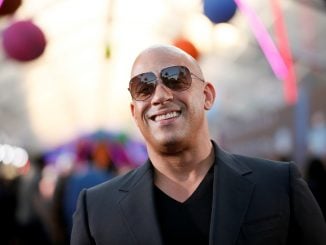In 2001, Sharon Bryant had two weeks to learn everything there was to know about the West African tradition of Jonkonnu in order to lead a new program at Tryon Palace. “I had to teach myself from the ground up in case someone had a question during the presentation,” said Bryant. “If I wanted to educate people in attendance I needed to understand the significance.””Slaves had to find a way to comfort themselves and their families,” said Bryant. “If you could bring nothing with you when you were sold into slavery, you would bring your culture and your traditions.”Jonkonnu (the origin of the name is unknown, but is pronounced “John Canoe”) and its celebratory mixture of song, dance, and drumming can trace its roots to Jamaica and the Caribbean. This African American celebration was held the day after Christmas. “It was their everything,” said Bryant. “This is the one day the slaves were granted by their masters to rejoice in every important event they had stored up all year every birth, marriage, every single holiday it all got lifted up on Jonkonnu.”Bryant learned well, and her trial by fire, on-the-job education shines through as she and the Tryon Palace Jonkonnu Drummers travel to Washington, D.C., Atlanta, Charlotte, and to Raleigh on the last weekend in January for the 16th Annual African American Cultural Celebration.The group has been a beloved staple of the AACC for many years and opened the event with their distinct brand of revelry as the town crier explained, “The ragman in his costume of many colors, each rag representing his ancestry and the movement of freedom as they went from town to town, and door to door.” The town crier continued, “And after each performance they would go up to the door, knock on that door and the master himself would come out and drop a coin in his old tin cup.Jonkonnu!Can’t you hear the drums?Can’t you hear the drums?Jonkonnu is coming!”The answer was a soul-stirring version of the hymn “Wade in the Water.”Bryant and her colleague Keith McClease, the Tryon Palace garden operations supervisor, made a commitment to themselves, the Jonkonnu participants, and the community at large to research the history of the performance even further by traveling to Ghana ten years ago to see Elmina Castle, the first European slave-trading post in Sub-Saharan Africa.Both Bryant and McClease are determined to make sure anyone involved with Jonkonnu brings that depth of history to the program. “That drum connects with everybody,” said McClease. “It gets to where the heart is beating.”McClease has been a part of Jonkonnu for thirteen years and as a drummer he credits music as tying things together to affect his life in this time. “I see Jonkonnu as remembrance and connection,” said McClease. “A time of bringing people together and letting them know we all have a common bond of wanting to be happy, successful, and together.”That sentiment was woven throughout the entire day and embodied within people like Bryant and McClease as everyone celebrated the theme “The Shoulders We Stand On” at the North Carolina Museum of History for the 16th Annual African American Cultural Celebration.
Related Articles

Features
History marked
May 22, 1926 Establishment of Great Smoky Mountains National ParkPresident Calvin Coolidge signed a bill establishing the Great Smoky Mountains National Park. The idea to establish the park in North Carolina and Tennessee originated in […]

Features
Entertainment briefs
‘Fate of the Furious’ Rides to Third Straight No. 1 while ‘Latin Lover’ Tops Tom Hanks in ‘The Circle’It has become a familiar story “The Fate of the Furious” is, once again, the box […]

Features
Up, Up and Away!
FUQUAY-VARINA The sky was a kaleidoscope over eastern Wake County for Memorial Day weekend. The annual Freedom Balloon Fest, put on by Project Uplift USA, Raleigh Jaycees and WRAL, welcomed an estimated 80,000 visitors […]
